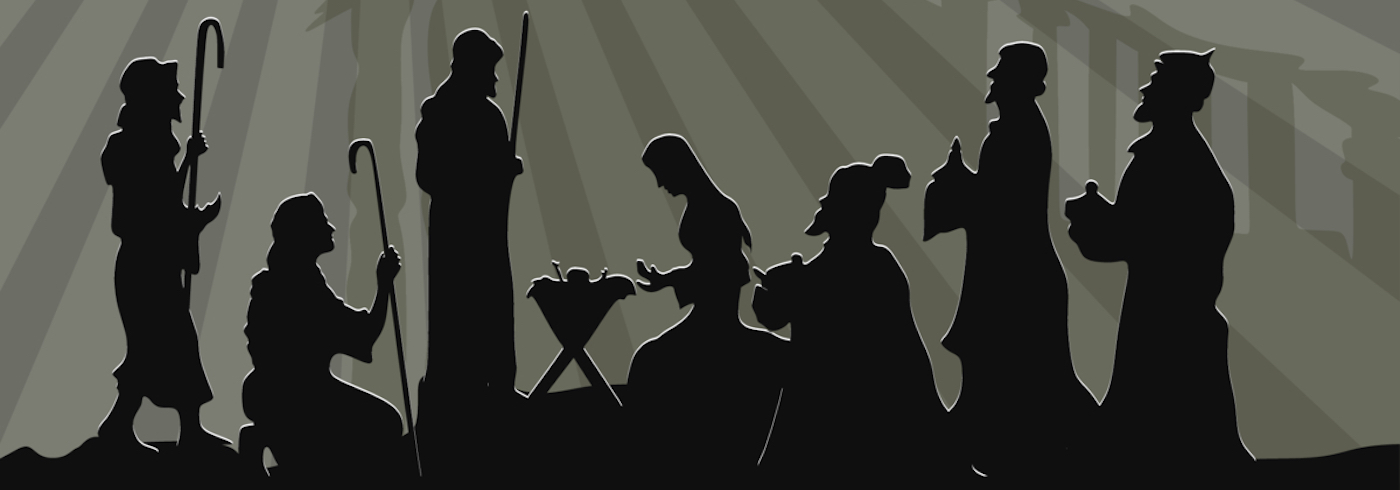What Shepherds and Wise Men Would Say Today
We can put aside our differences and come together to honor Jesus
Many believers don’t realize they spend much of their lives in a homogeneous bubble. We live in neighborhoods where people make the same amount of money. Our children go to school with kids their age. We can have our news delivered to us by people with the political slant of our choosing.
Dr. Martin Luther King Jr. once observed that 11 on Sunday morning is one of the most segregated hours for Christians in America. Today, many still attend church with others who look and think like they do. More and more, we shy away from the hostilities around us and retreat into safe places where we understand one another.
Every year when I set out my nativity, I am struck by the dissimilarity of the pieces and what they represent. I have two camels, a donkey, a cow and two sheep. Mary, Joseph, Jesus, two wise men and a shepherd. I realize that the shepherds and the wise men most likely didn’t arrive at the same time. But when I set them up next to one another, I can’t help but think about the extreme differences among the people the birth of Christ brought together.
The shepherds were agricultural workers. They lived in the area and had probably never traveled far from home. They worked with animals and with their hands, spending their days and nights outdoors in all kinds of weather. We don’t know of them bringing anything but their adoration.
Wealthy, educated, and influential were the wise men. They had traveled the known world, spoke other languages, and knew of other gods. They brought gifts that were lavish and most likely helped sustain Jesus’ family.
The shepherds and wise men had little in common. Not language, profession, upbringing or creed. There was only one common denominator: Christ. He is still the only One who can bring forgiveness and understanding out of hatred and mistrust. He is still no respecter of persons. He is not trying to transform the government or lead a rebellion. The message of the Cross is that we become less so Jesus can become greater, and this is the heart that is required to see reconciliation.
Where do we interact with those who are different than ourselves? There is not another place in society for people to set aside their agendas and biases. It must be the Church. And it can be your local church.
I can’t help but think about the extreme differences among the people the birth of Christ brought together.
A few years back, I was a guest worship leader at the church of some good friends. I got in a day early, and there was a farewell party for a student I had known, so I decided to go. This is a church that has made diversity a core value and lived it in all its complexities, and I saw it demonstrated that night.
I walked into the party room at the back of a restaurant. There were more than 50 young adults — white, black, Hispanic and Asian. They were all sitting together. Some of them were married and had their babies present. One by one, each person got up and read a poem, or sang a song, or recited a spoken word. They were cheering one another on, laughing, crying, just being together.
At the end, we all gathered around and prayed for the young man who was moving. It was one of the most incredible demonstrations of the body of Christ I have ever seen.
I commented to a young, African-American woman how incredible and unique this sight was. She said, “This is the only place in my life where it looks like this.”
I wish it could be that way more often.
The morning after the 2016 election, one of our men’s groups was meeting at the church. A disabled, African-American man who attends our church and lives in the neighborhood came in with tears in his eyes, discouraged and in shock. The next guy to arrive was a Caucasian business owner, who walked in the door, threw open his arms and announced, “It’s a great day to be an American!”
After this awkward and painful greeting, a real conversation followed between two people who see the world differently. They came away with greater understanding, because they share the most important thing: a genuine love for Christ. This love gives them the strength to worship alongside people they would otherwise never know because of their many differences.
That is the body of Christ.
The apostle Paul said it so well in Colossians 3:11-15: “In this new life, it doesn’t matter if you are a Jew or a Gentile, circumcised or uncircumcised, barbaric, uncivilized, slave, or free. Christ is all that matters, and he lives in all of us. Since God chose you to be the holy people he loves, you must clothe yourselves with tenderhearted mercy, kindness, humility, gentleness, and patience. Make allowance for each other’s faults, and forgive anyone who offends you. Remember, the Lord forgave you, so you must forgive others. Above all, clothe yourselves with love, which binds us all together in perfect harmony. And let the peace that comes from Christ rule in your hearts. For as members of one body you are called to live in peace” (NLT).
This Christmas, let’s demonstrate the peace of Christ our world so desperately needs. Whether your life looks more like that of a shepherd or a king, let’s not allow our differences to intimidate or separate us, but let us find strength in the mosaic of the nativity and the unifying power of the Cross.
Influence Magazine & The Healthy Church Network
© 2026 Assemblies of God

